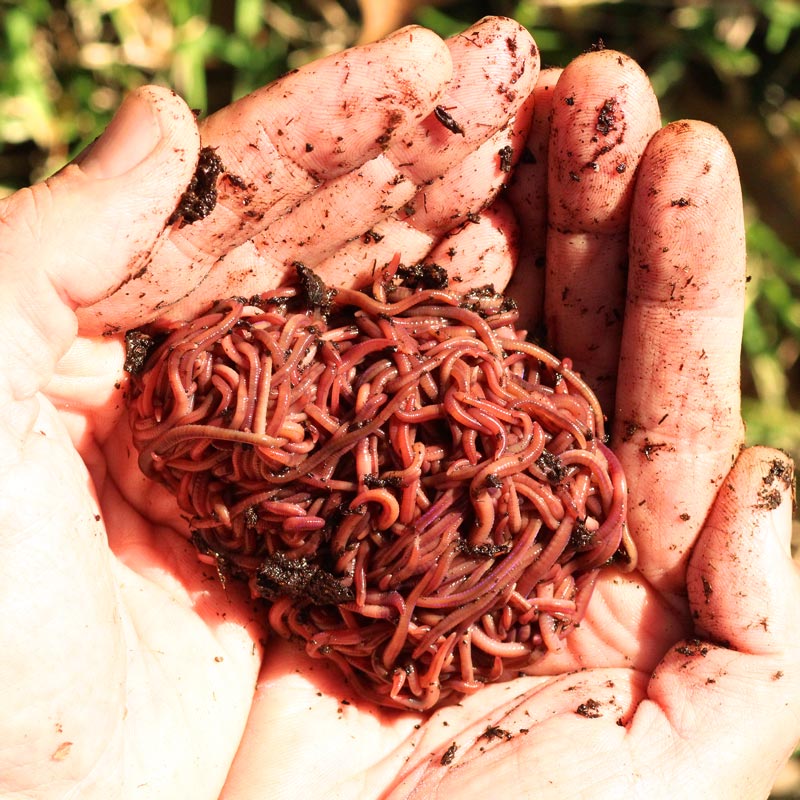Professional Lawn Care Assistance Powered by Lake Hickory Bait for Stunning Results
Professional Lawn Care Assistance Powered by Lake Hickory Bait for Stunning Results
Blog Article
The Unbelievable Globe of Red Wigglers: Increase Your Dirt Fertility Today
These small yet reliable organisms change organic waste right into important worm spreadings, dramatically enhancing soil health and promoting lasting techniques. As we discover the advantages of vermicomposting and the practical steps to create an effective worm container, the potential impact of these worms on your horticulture success comes to be significantly evident.
Understanding Red Wigglers
Red wigglers, scientifically referred to as Eisenia fetida, are a species of earthworm that play a critical function in improving soil fertility. These worms prosper in organic-rich environments, such as compost heap and rotting plant material, where they consume natural waste and excrete nutrient-dense castings. Their distinct makeup, featuring a fractional body and a clitellum, allows them to reproduce rapidly and effectively procedure large amounts of organic matter.

The ecological significance of red wigglers extends beyond simple waste processing; they add to the dirt food internet, promoting a varied area of microorganisms that further enhance dirt health and wellness. Understanding the biology and habits of red wigglers is necessary for using their full potential in sustainable agriculture and horticulture practices.
Benefits of Vermicomposting
(Red Wiggler Express)Harnessing the power of red wigglers via vermicomposting offers many benefits that substantially enhance soil health and wellness and fertility. Among the primary benefits is the manufacturing of nutrient-rich worm spreadings, which are an exceptional all-natural fertilizer. Red Wiggler Express. These castings have essential nutrients like nitrogen, phosphorus, and potassium, advertising robust plant development and enhancing crop yields
Additionally, vermicomposting improves soil framework and oygenation. The presence of worm castings boosts soil texture, permitting far better water retention and drainage. This balanced wetness level is critical for root development and the total wellness of plants. Red wigglers assist break down organic matter, speeding up decay and recycling nutrients back right into the dirt.
Vermicomposting additionally fosters microbial activity, which is crucial for a healthy dirt community. Beneficial microorganisms flourish in the visibility of worm spreadings, helping in the breakdown of organic materials and improving nutrient schedule to plants.
Last but not least, vermicomposting works as an effective waste administration solution, minimizing garbage dump waste by recycling kitchen area scraps and various other organic products. This not just adds to environmental sustainability yet additionally promotes a round economic climate within gardening and farming.
Just How to Establish a Worm Bin
Establishing a worm container is an uncomplicated process that can significantly boost your composting initiatives. Begin by choosing an ideal container, which can vary from a readily available worm container to a basic plastic or wood box (Red Wiggler Express). Ensure the container has ample ventilation; little holes in the cover and sides will certainly help with air flow
Following, develop a bed linens layer to provide a comfy environment for the red wigglers. This can be made from shredded paper, cardboard, or coconut coir, moistened to a moist, sponge-like uniformity. Load the container to around one-third complete with this bedding material.
Once the bed linens is prepared, it's time to introduce the worms. Red wigglers prosper in organic waste, so area them carefully onto the bed linens. Cover the worms with a light layer of added bedding to help them accommodate.
Feeding Your Red Wigglers
Giving the best food for your red wigglers is vital for their health and wellness and the performance of your composting system. Red wigglers thrive on a varied diet, largely being composed of natural materials such as fruit and vegetable scraps, coffee grounds, and shredded paper. These materials not only provide necessary nutrients but also contribute to the microbial task in the worm bin, which is vital for the worms' food digestion.
It is very important to avoid specific foods, such as dairy items, oils, and meats, as these can bring in parasites and create unpleasant odors. Furthermore, citrus peels and extremely hot foods must be limited because of their potential to damage the worms. A balanced approach to feeding entails keeping an eye on the amount of food introduced to the bin, guaranteeing that it is eaten within an affordable period to stop excess waste buildup.
To advertise ideal digestion, it is valuable to slice or shred larger food things prior to adding them to the container. This technique increases the surface for microbial activity, helping with quicker disintegration and boosting the total performance of your composting system. Regularly observing the worms' feeding habits will assist you adjust their diet regimen as essential.
Using Worm Castings in Your Garden

(Red Wiggler Express)Incorporating worm castings right into your garden can be accomplished by blending them right into the dirt or utilizing them as a leading dressing. The slow-release nature of these castings guarantees that nutrients are readily available to plants over a prolonged period, decreasing the need for artificial fertilizers. Furthermore, worm castings have valuable bacteria that promote healthy and balanced soil ecosystems, enhancing the total durability of your garden.
To maximize the advantages, objective to use approximately one component worm castings to 3 parts dirt in your planting beds. Regular applications can cause enhanced crop returns and healthier plants, making worm spreadings an important source for both beginner and seasoned gardeners alike. By using this natural modification, you can cultivate a growing garden while adding to sustainable horticulture methods.
Conclusion
In verdict, red wigglers exhibit visit this web-site the vital function of vermicomposting in boosting soil fertility. Their capacity to transform natural waste right into nutrient-rich spreadings dramatically improves dirt structure and sustains microbial diversity.
Report this page